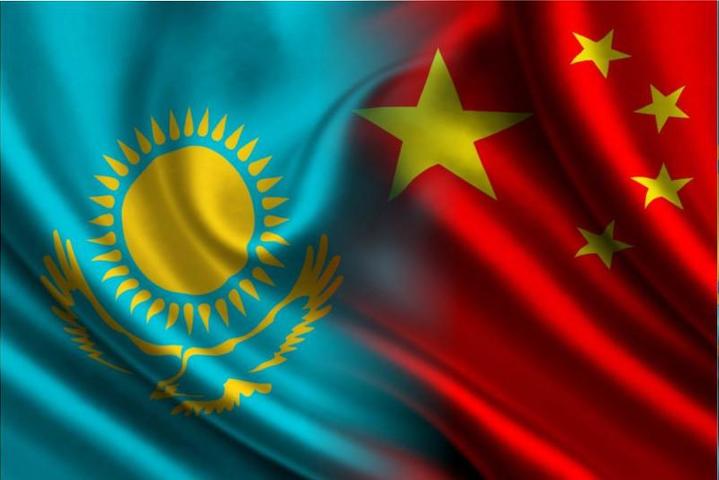
14.09.2022
In June 2017, Chinese President Xi Jinping visited Kazakhstan. Just like this year, his state visit was preceded by a conceptual article “Sino-Kazakh relations take off on the wings of a dream” (https://www.mfa.gov.cn/ce/ceka/rus/zhgx/t1468449.htm ). The publication, published 5 years ago, contained key messages to the Kazakh people and a vision of priorities for the further development of bilateral relations between Kazakhstan and China. In the article, the author gave a generalized assessment of the 25th anniversary of all changes in bilateral relations and outlined his wishes for the further development of Chinese-Kazakh cooperation.
Such a thoughtful conceptual message on the eve of state visits seems to be becoming a stable tradition of Kazakh-Chinese relations.
In a recent article “To continue the tradition of Chinese-Kazakh relations and open up new opportunities” (https://kazpravda.kz/…/prodolzhit-traditsiyu-kitaysko …/) the Chinese leader gave a comprehensive assessment of three decades of bilateral relations. In his current publication, he confidently says that China highly appreciates cooperation with Kazakhstan and is ready to expand joint horizons. In particular, as Xi Jinping notes, China is determined to jointly develop the following areas.
Firstly, following the course of good-neighborliness and friendship, maintaining a high level of political mutual trust is the key to the sustainable and dynamic development of bilateral relations. Xi Jinping says that “the doors of openness and cooperation of China will always be open for Kazakhstan” and mentions a Kazakh proverb, which emphasizes the similarity of the values of neighboring peoples. Thus, the Chinese leader once again confirms that there is a deep historical connection between the Kazakh and Chinese peoples (regardless of the state entities that were on the territory of the two peoples’ residence), and it is on people and their relations that modern state relations of the Republic of Kazakhstan and the People’s Republic of China are built.
Secondly, to continue to increase mutually beneficial cooperation, in which the construction of the “Silk Road Economic Belt”, the idea of which was announced in Kazakhstan, is of particular importance. President of the People’s Republic of China Xi Jinping outlined such priorities of cooperation as the disclosure of checkpoint capacity and transit traffic, the cultivation of new growth points in such areas as artificial intelligence, big data, digital finance, e-commerce, green energy. These directions have been repeatedly voiced by the President of the Republic of Kazakhstan K.K.Tokayev, they fully meet the long-term economic interests of Kazakhstan and, most likely, will be discussed in detail at the negotiations in Nur-Sultan.
Thirdly, to protect the common security in a complex international and regional situation. China is ready to expand cooperation with Kazakhstan through law enforcement agencies, jointly counteract a wide range of challenges to stability in the region and external influence. This proposal should be seen as Beijing’s desire to provide comprehensive support to Kazakhstan as a neighbor and an important strategic partner in the face of global turbulence and the recurrence of many regional challenges. Xi Jinping’s rather detailed proposal on security cooperation speaks of a shift in the priorities of Chinese diplomacy and a desire to preemptively neutralize challenges through the support of its neighbors and thereby strengthen stability along the perimeter of the PRC’s borders. Apparently, a series of instability in Kazakhstan (January events), Tajikistan (Gorny Badakhshan), on the border of Kyrgyzstan and Tajikistan, in Uzbekistan (Karakalpakstan), in Pakistan (internal political crisis), etc. led to this vision.
Fourth, to strengthen cooperation on the world stage, including within the framework of such multilateral formats as the UN, SCO, CICA, China–Central Asia. This means that the PRC views Kazakhstan both as a good neighbor and as a reliable, authoritative foreign policy partner with similar positions on topical international issues. At the same time, in the 2017 article, Xi Jinping placed great emphasis on the work of the SCO, in the current publication the Organization is mentioned along with other structures. At the same time, the “China – Central Asia” platform was noted, which, apparently, will be given increasing importance in Chinese regional diplomacy.
In general, the current message of the Chinese leader reads the readiness of dynamically developing China to provide more and more support to our country. Xi Jinping outlined the future changes in the development of the People’s Republic of China, which will occur after the XX National Congress of the CPC and will be associated with a new stage in achieving the goal of the century of the People’s Republic of China – namely, building a middle-class Xiaokan society by 2049 and fulfilling the Chinese dream of reviving the nation, i.e. building a strong developed state. This means that over the next 27 years, China is striving to become one of the most developed countries in the world. In this context, the Chinese leader expressed support for the comprehensive reforms underway in our country, the desire of the Kazakh people to build a New Kazakhstan and reach a new, higher level of development by 2050. The goals and guidelines of the two countries largely coincide.
As expected, many of the provisions voiced in the article by the Chinese leader will receive their practical implementation following the results of the summit talks on September 14
this year.
China Studies Centre
Nur-Sultan, 2022
Number of shows: 2453
